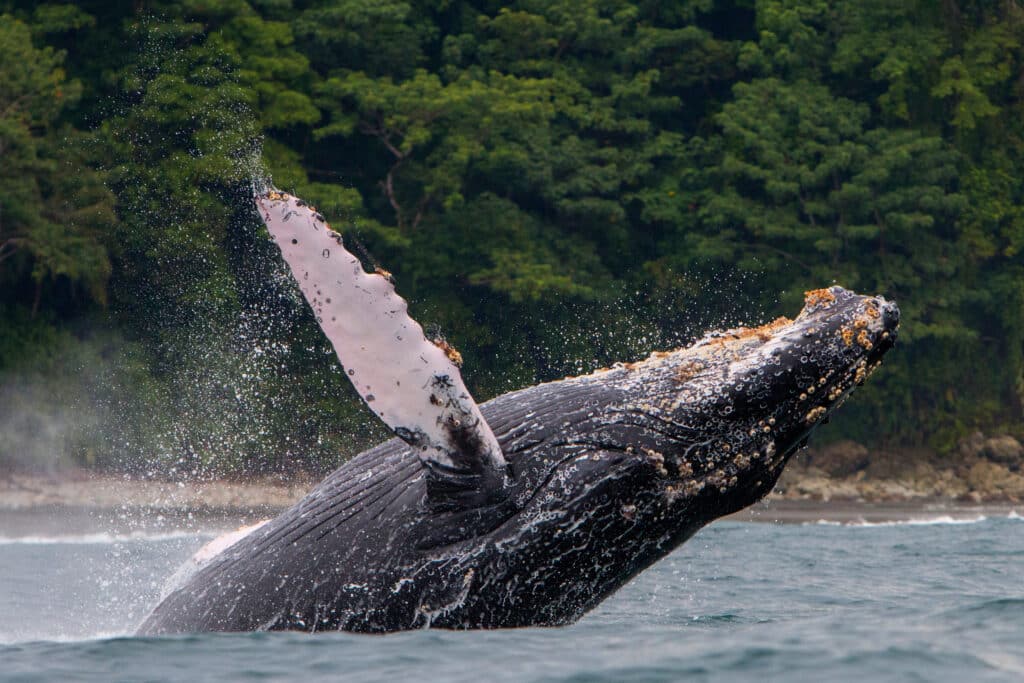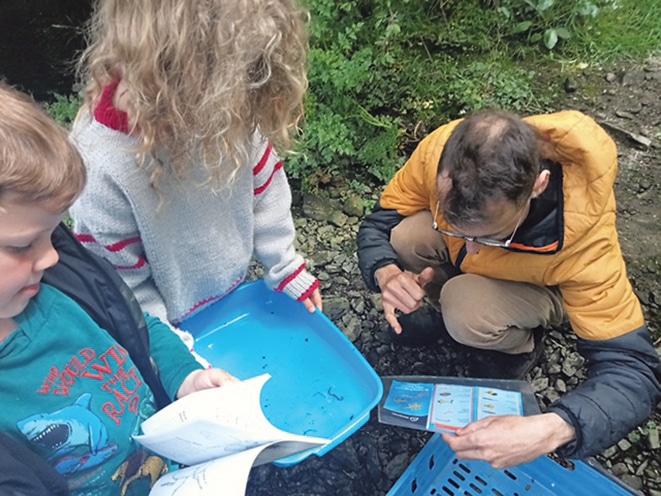As the waters warm around the coast of West Cork and we welcome the annual migration of whales, and lots of activity from dolphins and porpoises, Marine Biologist and Oceanographer and IWDG member Catherine Russell reminds us that these creatures should not be disturbed or stressed in their natural habitat.
Rich with life, there are over 25 cetacean species in Irish waters, a mixture of year-round residents and some visitors. Pods of dolphins are present year round and larger species such as humpbacks, minkes and fin whales are annual visitors; arriving during May, their presence is announced by groups of birds, dolphins and their distinct blow. Each species can be identified by the angle and type of blow.
The exceptional properties of the South and SW Coast provide ideal conditions unique in Europe for marine life to live, feed and breed. Many species are endangered or vulnerable worldwide. In 1991 the Irish Government declared all Irish waters (The EEZ) to be a whale and dolphin sanctuary in recognition of the importance of this habitat. The Irish Whale and Dolphin Group (IWDG) has been leading the way with conservation efforts in Ireland. ‘Mission Blue’ has identified areas of West Ireland declaring hope spots by a global marine conservation movement, stretching from Kenmare Bay to Kerry. These aim to increase public awareness, support and access for worldwide Marine Protected Areas. The Hope spots have been scientifically identified as critical to ocean health and include places such as the Galapagalos, the Great Barrier reef, Antarctica.

National and international legislation protects cetaceans. The EU Wildlife Act (1976) and amendments state it is an offence to hunt, injure or wilfully interfere, disturb, or destroy the resting or breeding place of protected species (unless under license or permit).
West Cork is very fortunate to have the chance to see these creatures in their natural habitat and have a duty to make sure they are not disturbed or stressed. Whale watching is an activity that should be carried out from a distance. Engine noise and the threat of propeller damage can cause unnecessary stress and the IWDG has created a code of conduct to safeguard these majestic creatures. Simple rules to remember are do not approach head on or behind, the best angle is slightly behind and to the side staying parallel. Do not go closer than 100m avoid sudden changes in direction. Do not stay longer than 30 minutes and avoid loud noises. Do not scatter or separate groups and never get between a mother and calf. If the whale, dolphin or porpoise approaches the boat keep your engine in neutral, idle for a minute and then switch the engine off. The exception of course is dolphins who are very playful and love to bow ride!
Follow West Cork Kayakers Facebook page for more information on interacting with the environment in their new sustainability code.
Catherine Russell is a JNCC accredited Marine Mammal Observer and member of the West Cork Kayakers based in Tragumna who have recently launched a sustainability code with information about interactions with marine life.
For more information go to www. IWDG.ie


